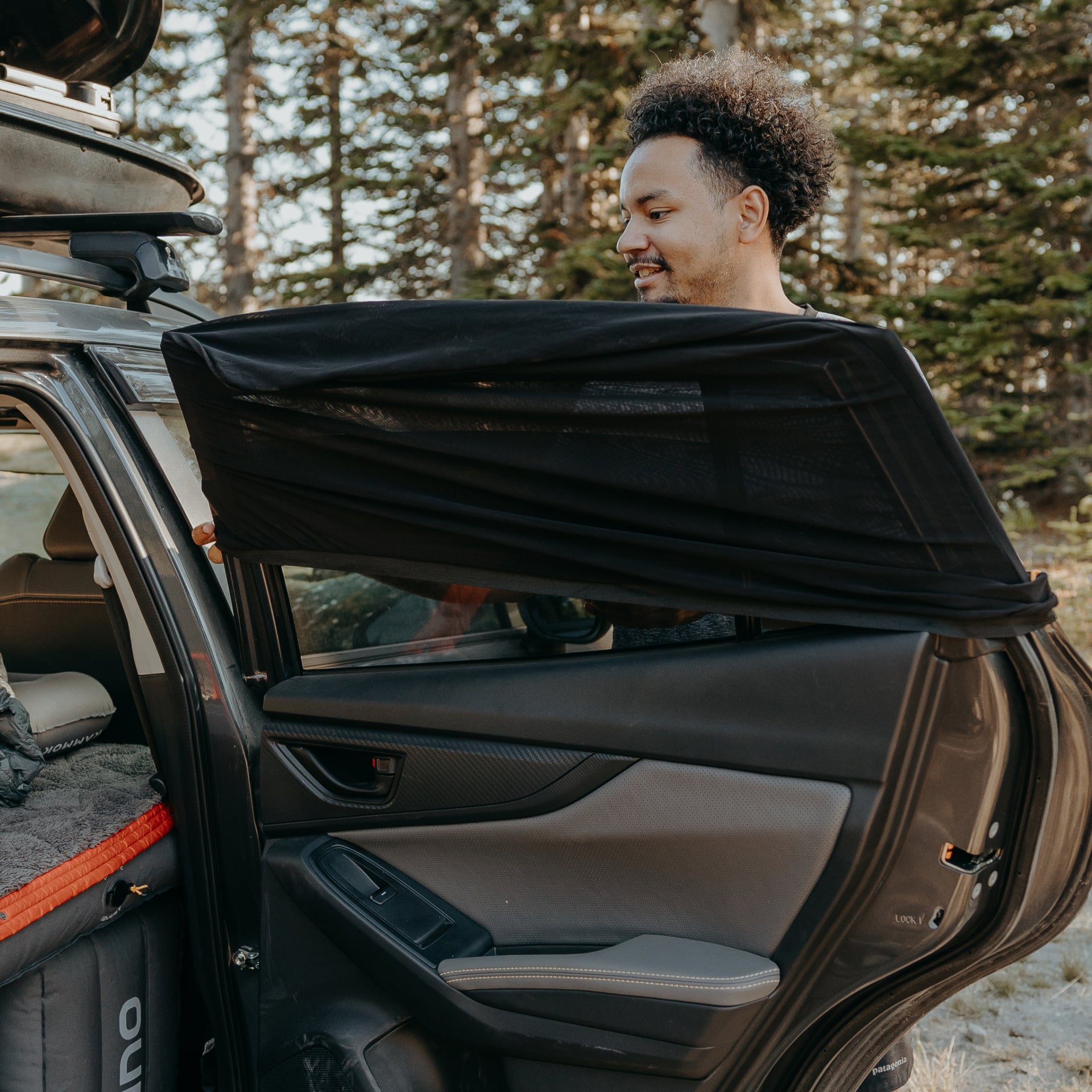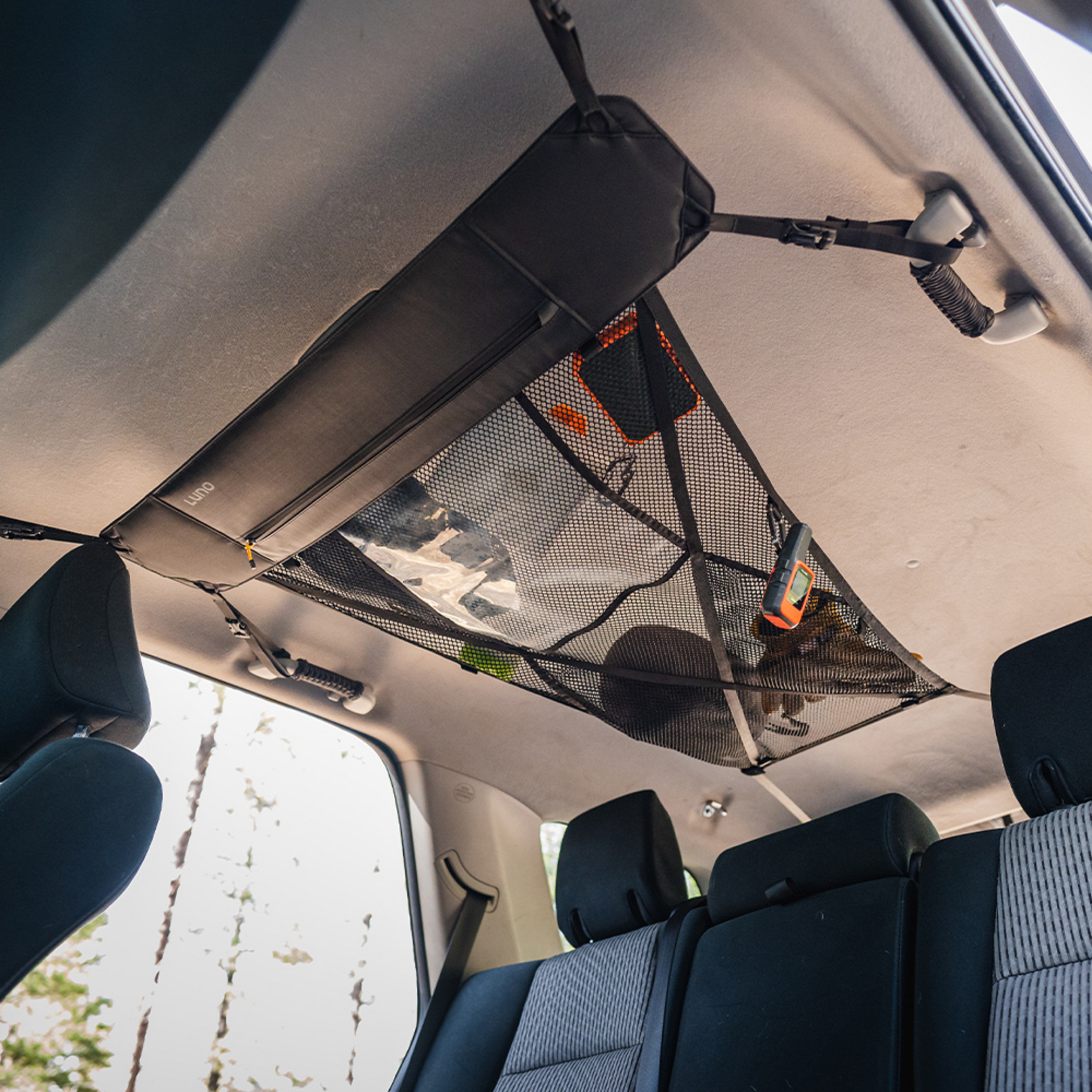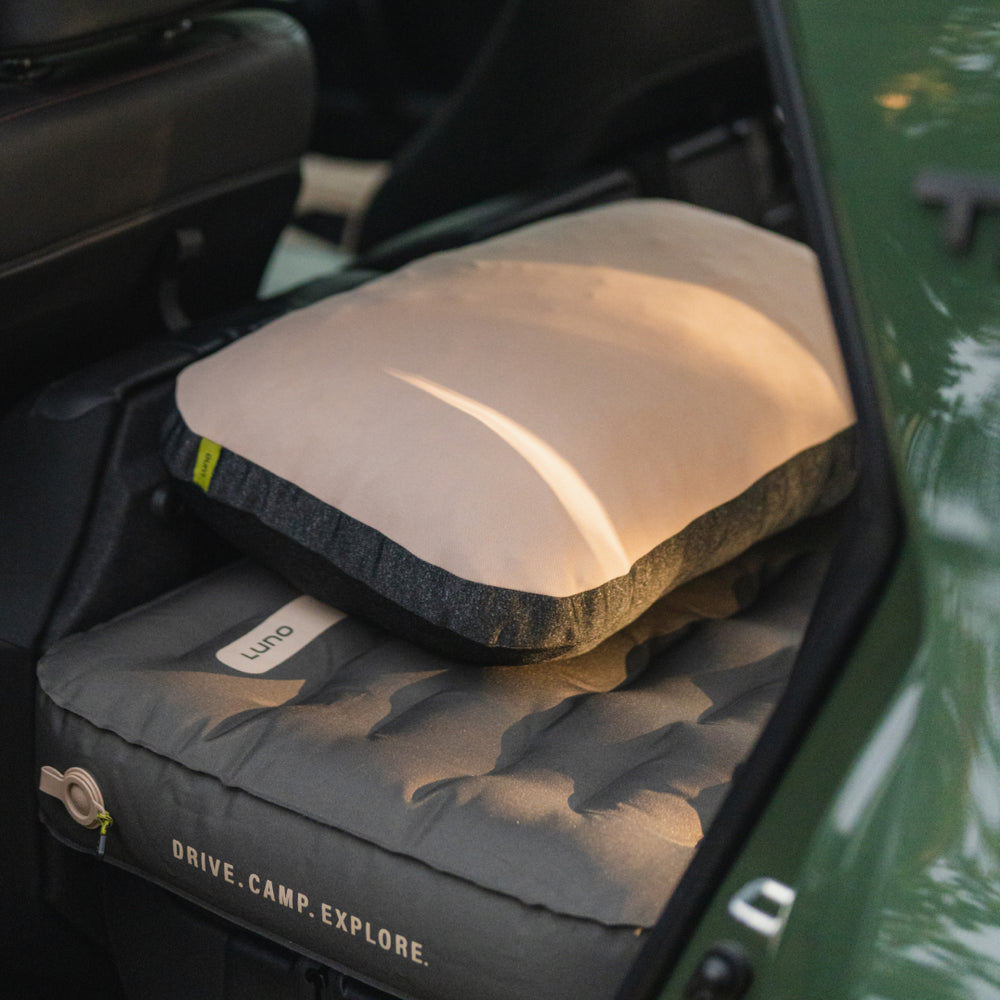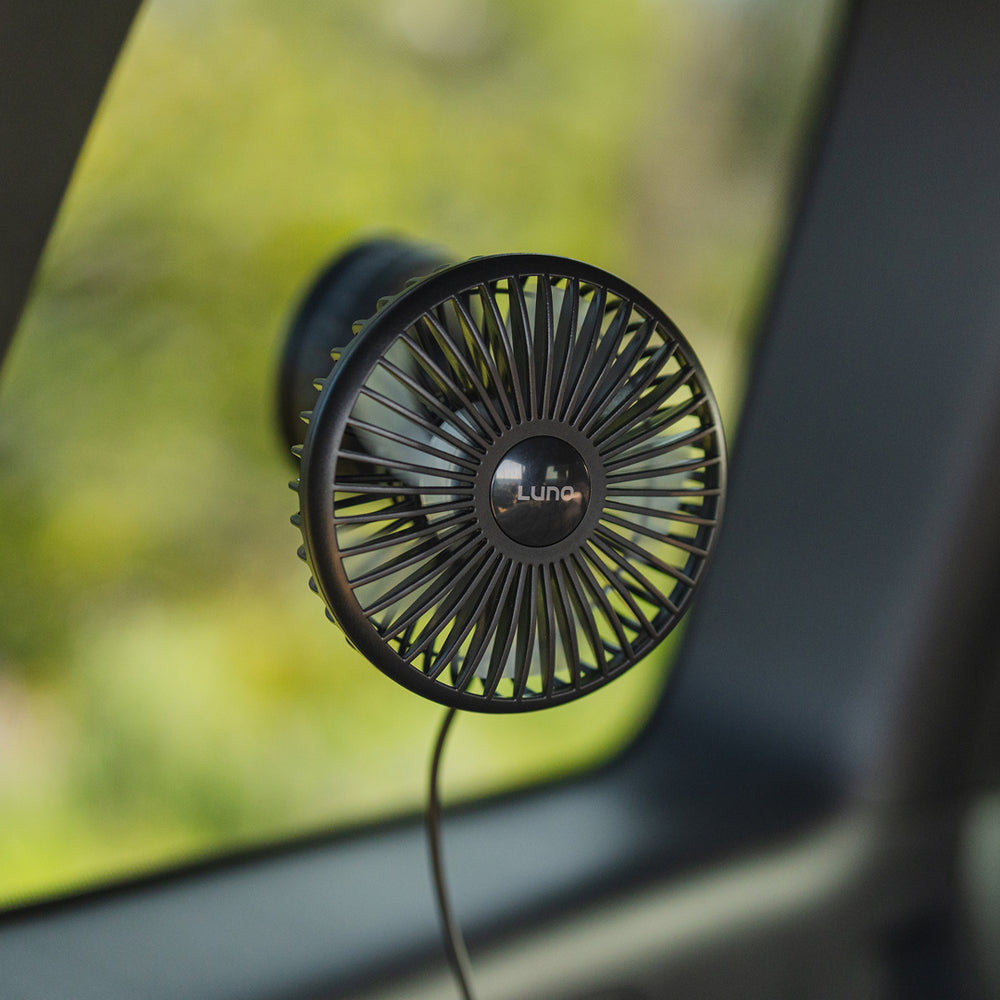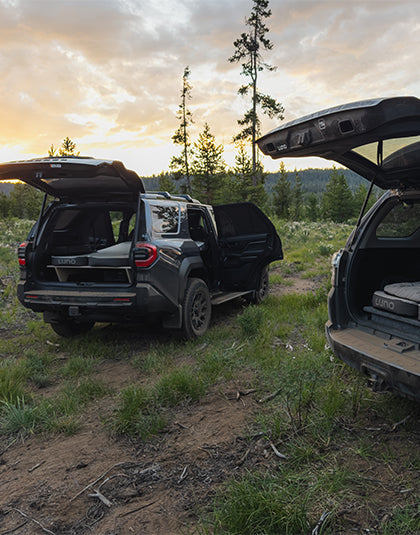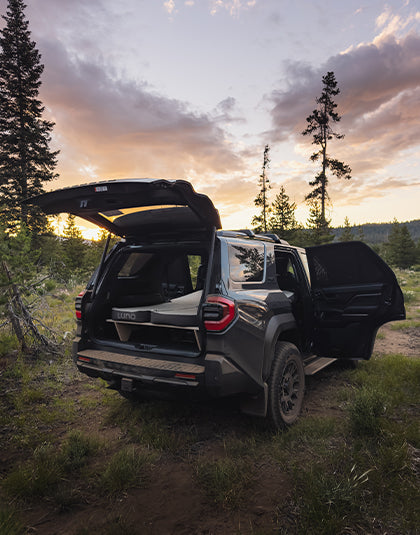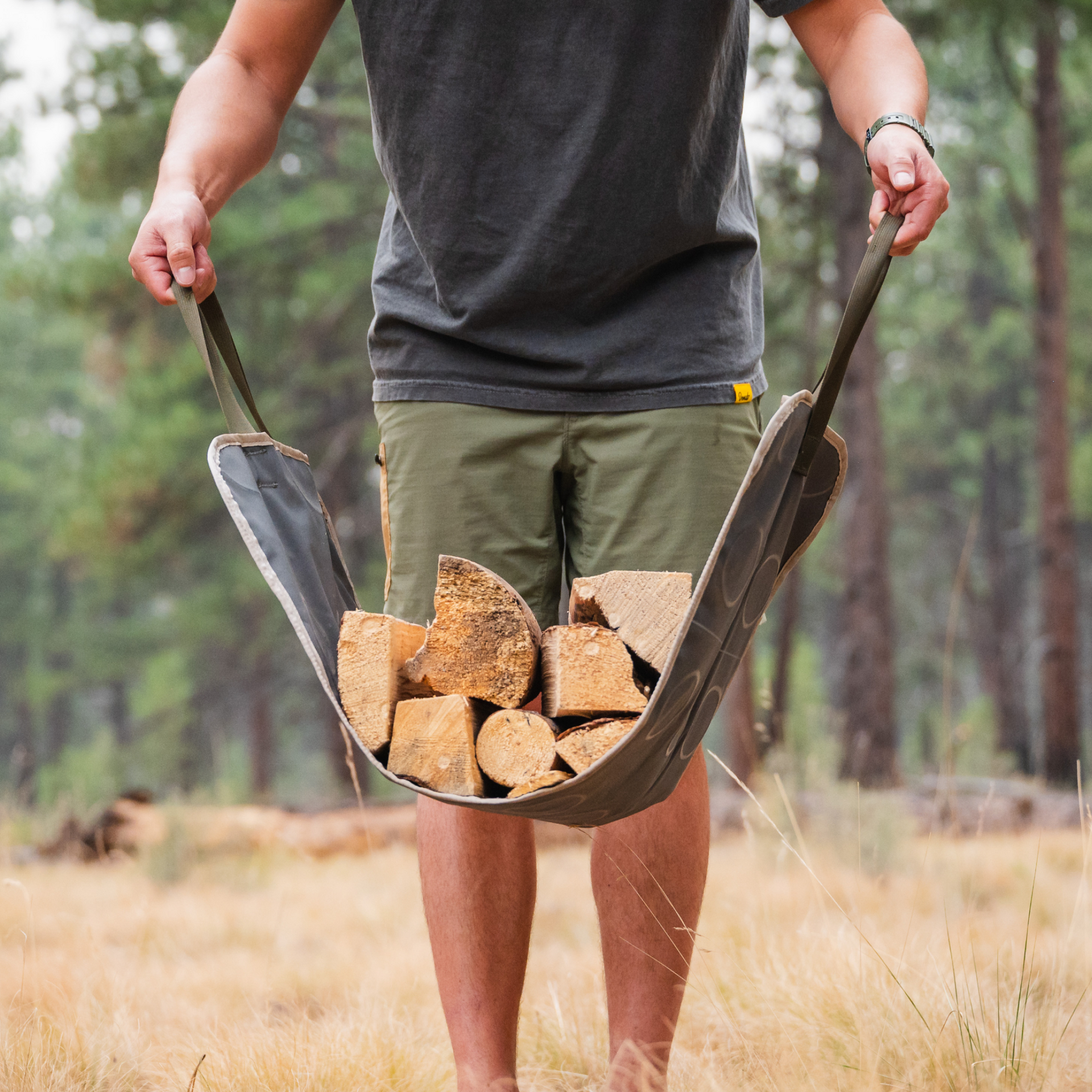
Why Camping in Your Car is Safer Than a Tent
Considering sleeping in your car on your next camping trip? We think camping in your car is safer than a tent, especially when you consider weather, wildlife, and crime. Here’s why.
Don’t get us wrong, we love camping in tents—we just love camping in cars much, much more. Why do we prefer to bed down in vehicles? First and foremost, our award-winning air mattresses are much more comfortable than traditional camping pads on uneven ground, enabling road trippers to get a good night’s sleep anywhere. And then there’s convenience: you don’t need to pitch a tent upon arrival at your destination—just crawl into the back and crash. We harp on comfort and convenience all the time, but there’s another advantage to car camping that doesn’t get talked about nearly enough: safety.
Below, we’ll dive into why we think camping in your car is safer than camping in your tent, and explain why so many campers make the switch from tent to trunk.
Is Camping in Your Car Safer Than a Tent?
The short answer is easy: yes, 100%.
The long answer? Camping in a metal, lockable car is much more secure than camping in a paper-thin nylon tent that’s closed only by zippers. Let’s go through a few common hazards to illustrate our point.

Extreme Weather
Camping in the Rain and Wind:
Torrential rain and wind can quickly dampen an otherwise stellar camping trip. While the best tents are designed to handle extreme weather, even the most waterproof fabrics can soak through or tear. And even the strongest tentpoles can bend and snap like Elle Woods in Legally Blonde.
Unless your car roof is rusted through or the seam between a door and door frame is compromised, wind and rain are less of a concern when camping in your car. That said, gale-force winds can be annoying when car camping, as they can shake the car. Pro tip: park with your nose facing into the wind: it’s more aerodynamic and results in less turbulence.
Camping in the Snow:
Snow’s another beast entirely when tent camping, as you’ll need an expensive four-season tent to stand up to the temperatures and weight of fallen snow. Your car, on the other hand, can handle the weight of snow without concern. And if you cut insulated window panels out of Reflectix and have a warm sleeping bag, you’ll be just fine in your car.
Camping when there is Lightning:
Last but not least: lightning. Tents will not protect you from lightning strikes, but according to the National Oceanic and Atmospheric Administration (NOAA), an enclosed car with a metal roof and closed windows can keep you from being electrocuted, as electricity will transmit through the metal frame, through the tires, and into the ground.
Wildlife
Q: What do bears, moose, wolves, snakes, spiders, and cougars have in common?
A: We have no interest in cuddling with them while camping.*
*Although I suppose this depends on your definition of “cougar” and your relationship status/dating preferences.
We’re no stranger to wildlife. We’ve tent camped extensively in grizzly country, woken up to a snorting, peeved 1,200-pound moose stomping circles around our tent, and even brushed scorpions off our bedding. And while we’re game for wildlife sightings, we aren’t inviting apex predators and poisonous creepy crawlers into our living spaces. Hell to the no.
Camping in a locked car makes encounters with full-grown grizzlies and moody moose much less puckering—worst case scenario, you can always jump into the driver’s seat, start the car, and scram. The raised platform reduces the chances of a snake in your sleeping bag, too.
In all likelihood, you can probably tent camp for decades without a life-threatening interaction with wildlife, but camping in a vehicle undeniably lowers your risk. If you have a low risk tolerance—or you simply get spooked easily—then camping in a car is the way to go.

Campground Crime
Tents offer decent protection from rain, wind, and mosquitos, but they’re not a deterrent for campground crime–a primary reason why we believe car camping is safer than tent camping.
Protecting Your Belongings
Getting your gear stolen is a quick way to ruin an otherwise epic camping trip. While it’s possible to lock tent zippers with a TSA travel lock, it’s not a very common practice. Why? Well, because anyone can easily cut through nylon tent walls. We’ve put enough accidental holes in tent walls over the years to know that you don’t even need a knife to cut through the fabric–a nail clipper, toothpick, or jagged rock would do the trick just fine. You can, however, lock a car. Yes, people break into locked cars, too, but it requires more effort and minimizes chances of opportunistic theft. Locking your gear in your vehicle isn’t a surefire bet, but, in our opinion, it’s a better way to secure your belongings then leaving them unattended in a flimsy tent.
Protecting Yourself
Gear theft might be hard to handle mentally, but it’s a minor concern compared to physically harmful crimes. Remote campgrounds and wilderness areas aren’t immune to violent crime, and the very threat of violent crime keeps some would-be campers from embarking on camping trips in the first place. If you’re road-tripping alone, or you don’t feel safe in outdoor spaces for whatever reason, camping in a tent might feel unviable. Camping in a locked car may provide an extra layer of security, allowing you to sleep soundly, explore the outdoors, and pursue your passions more confidently.
Beyond that, we always recommend you be smart and careful while camping: to start, keep an eye out for suspicious behavior and avoid belligerence. Especially if you’re rolling solo, it’s not a bad idea to have pepper spray and an emergency communication device, like the Garmin inReach Mini 2,on hand, too.

So Is Car Camping Safer Than Tent Camping?
Long story short? Compared to tents, especially those pitched on the ground, a vehicle is a veritable fortress. Your vehicle can withstand extreme weather better than a tent. Your vehicle is less susceptible to wildlife, be it a warmth-seeking rattlesnake or hungry bear. And thanks to locks, your vehicle is much safer than your tent when it comes to keeping you and your gear safe.
That said, regardless of whether you decide to make the switch from tent to trunk, we hope that your travels are safe. We’ll see you out there—we’ll be the ones sleeping soundly, locked safely in the back of our car.

